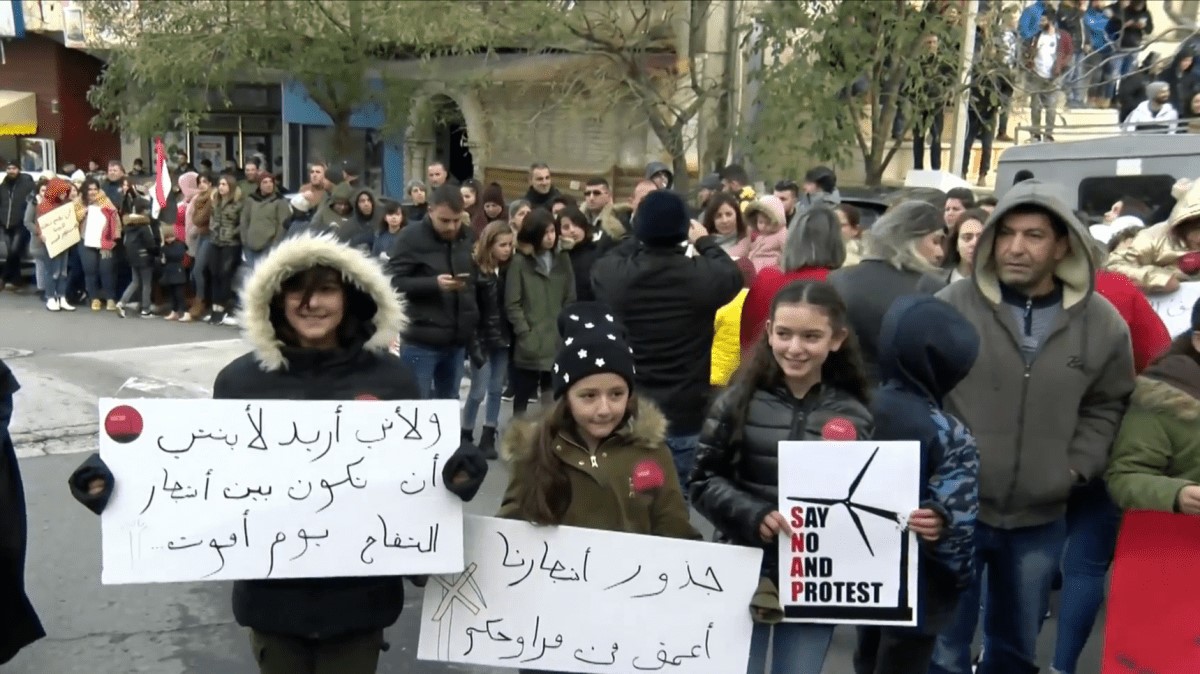A general strike was held in the Golan Heights on Sunday, February 2, after the Israeli government approved plans on Thursday, January 30, for a commercial wind farm that would see at least 25 wind turbines built in the occupied Syrian territory. According to the Communist daily newspaper, Al-Ittihad, the government’s decision came less than a week after thousands of Golan Heights residents protested the project in Majdal Shams, marching with both red and Syrian flags.

A demonstration held in Majdal Shams against Israeli plans for a commercial wind farm that would see at least 25 turbines built in the occupied Syrian territory. The placard in Arabic on the right reads: “The roots of our trees are stronger than your wind turbines”; the sign on the left says: “Because I want my daughter to be among the apple trees when I die.” ( (Photo: Al Ittihad)
In response to the government’s decision, a popular committee representing Majdal Shams, Mas’ade, Ein Qiniyye, and Buq’ata — four Syrian Druze communities in the Golan Heights — announced it would exhaust “all available means” to resist the project, beginning with the general strike called for February 2.
Energix, the Israeli green energy firm developing the project owned by Alony Hetz Properties & Investments Ltd., one of Israel’s largest real-estate investment holding companies, welcomed the government’s approval of the project and said it is working on fulfilling final requirements for construction of the wind farm outside Majdal Shams.
In June 2019, two rights groups Al-Marsad – Arab Human Rights Centre in the Golan Heights, and Bimkom – Planners for Planning Rights, jointly filed objections to the plan with Israel’s National Infrastructure Committee, the authority overseeing Israel’s transition to a stronger reliance on green energy. In addition to procedural concerns, Bimkom argues that the wind farm project would cause “disproportionate damage to the unique social agricultural fabric that can be defined as a human cultural heritage.”
The objections filed by the two groups included expert testimony on the health problems caused by large-scale turbine construction, specifically the infrared radiation and high noise levels that put people living in the vicinity at risk. The rights groups’ objections included a petition signed by some 6,000 residents of the Syrian localities and were supported by hundreds of objections independently submitted by Syrian farmers and religious leaders in the Golan Heights.
Al-Marsad was notified in June of last year that Energix had filed a lawsuit against their organization, alleging its work violates the national boycott law and that its investigation into the project’s legality was slanderous. The lawsuit came after Al-Marsad had published more than a year’s worth of research on Energix’s proposed wind farm based on testimony from experts, locals, company representatives.
Related:


